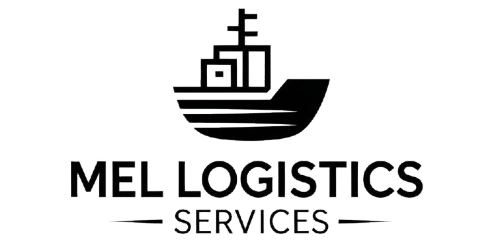Address
6-12 Newport Boulevard, Newport West, Kingston
Work Hours
Monday to Friday: 7AM - 9PM
Weekend: 10AM - 5PM

Navigating customs clearance in Jamaica can be a headache—especially if you’re new to the process or handling shipments for the first time. Whether you’re importing goods for business or personal reasons, making mistakes with Jamaican customs can result in costly delays, fines, or even the seizure of your items. The good news? Most clearance problems are completely avoidable. In this guide, we’ll break down the top five mistakes to avoid during customs clearance in Jamaica and share actionable tips to help your shipments clear smoothly.
Before we dive into common mistakes, let’s get clear on what customs clearance in Jamaica actually involves. Customs clearance is the process where Jamaican Customs reviews your goods, checks your paperwork, and ensures that you’ve paid the right duties and taxes. The Jamaica Customs Agency (JCA) is the authority responsible for all imports and exports. Whether you’re shipping commercial cargo, personal effects, or vehicles, you’ll need to comply with their rules and procedures.

The most common stumbling block for importers is paperwork. Jamaican Customs requires a slew of documents for clearance, including the Bill of Lading, Commercial Invoice, Import Entry Form (C-78), Tax Compliance Certificate, and relevant permits or licenses depending on your cargo.
Mistakes often happen because shippers rush through forms, misunderstand requirements, or simply overlook details like proper item descriptions or harmonized tariff codes. Even something as trivial as a typo can hold your shipment for days.
Double-check every document before submission.
Use the correct harmonized codes and item descriptions.
Work with a licensed customs broker in Jamaica if you’re unsure.
Keep digital backups of all paperwork in case you need to resubmit.
The most common stumbling block for importers is paperwork. Jamaica’s customs duties and taxes can be steep, especially for high-value goods or restricted items. Many importers assume their shipment will be classified in a low-tax bracket, only to be surprised with a much bigger bill than expected.maican Customs requires a slew of documents for clearance, including the Bill of Lading, Commercial Invoice, Import Entry Form (C-78), Tax Compliance Certificate, and relevant permits or licenses depending on your cargo.
Misclassification of goods
Ignoring additional charges like the General Consumption Tax (GCT) or Environmental Levy
Failing to include shipping and insurance costs in the declared value
Use the Jamaica Customs Agency’s online calculator to estimate duties and taxes.
Consult the JCA’s tariff guide for your product category.
Declare the true value of your goods, including shipping and insurance.
Budget extra to cover unexpected fees.
Jamaica has strict rules on what can and cannot enter the country. Certain items, like firearms, drugs, and some agricultural products, are outright banned. Others require import permits, licenses, or inspections—think used vehicles, pharmaceuticals, or food products.Jamaica has strict rules on what can and cannot enter the country. Certain items, like firearms, drugs, and some agricultural products, are outright banned. Others require import permits, licenses, or inspections—think used vehicles, pharmaceuticals, or food products.
Trying to import restricted items without proper clearance can lead to confiscation, heavy fines, or even criminal prosecution.
Check the JCA’s list of restricted and prohibited goods before shipping.
Obtain all required permits or licenses in advance.
Work with a customs broker who understands the latest regulations.
Customs clearance in Jamaica is time-sensitive. Importers must submit documentation within specific windows, pay duties promptly, and collect goods before storage fees kick in.
Delayed document submission
Not paying duties or taxes on time
Failing to track shipments, which leads to missed delivery or storage deadlines
Set calendar reminders for key dates.
Track your shipment through your carrier or freight forwarder.
Pay duties and fees as soon as you receive the invoice.
Stay in regular contact with your customs broker or agent.
Trying to handle customs clearance in Jamaica on your own—especially if you’re new to the process—is risky. Licensed customs brokers know the ins and outs of Jamaican regulations, can preempt issues before they become problems, and often speed up the clearance process.
Importers sometimes try to save money by doing it all themselves, but end up paying more in the long run due to mistakes, delays, or fines.
Look for licensed and experienced professionals.
Ask for references and check reviews.
Ensure they’re familiar with your type of goods.
Get a clear breakdown of their fees and services.
Stay informed about changes in Jamaican customs regulations. The JCA frequently updates their requirements.
Label and pack your goods properly to avoid confusion or inspection delays.
Declare everything honestly—undervaluing or mislabeling items is a red flag for customs officers.
Use online tools and resources provided by the Jamaica Customs Agency.
Customs clearance in Jamaica doesn’t have to be stressful, but it does require attention to detail and careful planning. Avoiding these top five mistakes—incomplete documentation, miscalculating duties, ignoring restrictions, missing deadlines, and skipping a customs broker—can save you time, money, and hassle. Whether you’re shipping for business or personal reasons, understanding the customs clearance process in Jamaica is the key to getting your goods through smoothly.
For more information, always consult the Jamaica Customs Agency website or speak with a licensed customs broker in Jamaica who can guide you every step of the way.
